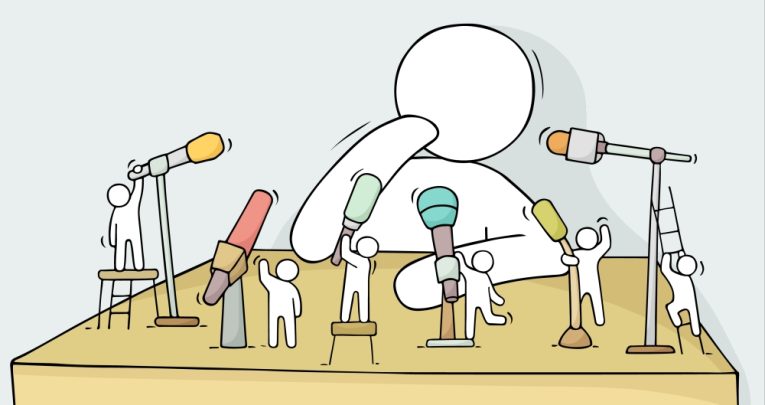“Teachers shouldn’t execute government policy”

We might agree that teachers should keep their political views out of the classroom, but that’s not helped by politics persistently intruding on education, says Ian Mitchell…

- by Ian Mitchell

As a teacher, I’m not supposed to push my political views onto students, and yet political values have now become so embedded within education that I’m finding it harder and harder to be apolitical.
I can certainly avoid telling students which party I voted for – that bit’s easy. Beyond that, I’ve done my best to conform with all the latest policies and adapt to changing expectations and etiquette within the staffroom.
I’ve enthusiastically kept my Prevent training updated, used my recyclable mug at least four times and dutifully tutted when someone brought up the subject of Ricky Gervais’ recent opening speech at The Golden Globes.
There have been times when I’ve gritted my teeth and other occasions when I’ve kept silent, but the way things are going, it won’t be long before I’m asked to go along with something that I can’t, in all conscience, support.
Bought and paid for
It wasn’t always this way. I can’t help but reflect on how politicised education has become in such a relatively short space of time. When I joined the profession as an English teacher back in 1998, New Labour had recently won the first of three general elections.
After Tony Blair famously declared that the government’s three highest priorities were ‘education, education, education,’ one of its first moves was to introduce performance- related pay – a remuneration package designed to reward only good teachers.
“We can’t have anything to do with that!” responded one of my senior colleagues at the time. “Either we all get a raise or none of us do.” That same teacher was swiftly gobsmacked to be told by his union to go along with PRP.
As the union rep explained, this rhetoric around distinguishing ‘good teachers’ from ‘bad teachers’ was only intended to appease the public. What the government was actually doing, we were told, was setting up a hoop-jumping exercise designed to make it look as though only some teachers would be getting pay rises. Sooner or later, we’d start to see PRP benefiting everyone.
So off scurried all those eligible teachers to busy themselves itemising all the tasks they performed on a daily basis – from the entering of marks into registers, to their lunchtime duties, the latter of which they were suddenly taking a much more active interest in.
Some teachers even set about starting up new initiatives of their own, for no reason other than to cite these on their PRP submission forms.
“The problem,” my senior colleague reflected sadly, “is that by engaging with this we can’t then disengage. We’ll have to do whatever New Labour say. You can’t support a pay rise and then subsequently complain about what they’ve said you need to do in order to get it.” During that year, the education system was effectively bought and paid for.
PRP meant that, by implication, the government knew what ‘good teaching’ was and what a ‘good teacher’ looked like. So it was that this concept of ‘good teaching’ began being drip-fed to NQTs. Lesson objectives should be written in the corner of the board, so that when reached they can be ticked off.
The four-part lesson – starter, introduction, main and plenary – became the blueprint for ‘good teaching’. Certain assumptions started to take hold – if you ask a question and fewer than half the hands go up, then it wasn’t a very good question, was it?
Tools of Whitehall
Over time, the scope of what’s understood as ‘good teaching’ has expanded beyond pedagogy. Successive governments have demanded that teachers be apolitical, while at the same time expecting teachers to execute government policy – Prevent being just one obvious example.
When we have teachers actively looking out for signs and indicators of extremism that the government can’t find for themselves, our secondary schools have effectively become a political arm of Whitehall.
Similarly, when primary teachers are called upon to inspect pupils’ lunch boxes as part of a calorie- counting exercise, teachers are, in effect, disciplining parents for their nutritional choices on behalf of the government. This political dimension to schools’ decision-making manifests in other ways, too. If parents take their children off on holiday during term time, the school fines them.
But if they request a day off so that their family can attend a protest against climate change, it’ll be granted. Schools can do little when politicians have decreed that time off for a holiday is unacceptable, but a day off for protesting against climate change is a matter for individual conscience.
Many teachers have enthusiastically embraced this politicisation of education, as it’s given them a heightened sense of purpose.
With schools devoting ever more time and resources to extra-curricular experiences, after-school clubs, pastoral provision and mentoring support, it’s increasingly likely that teachers’ own political views and convictions will affect how they respond to, and implement these highly political processes.
Yet the vast majority of teachers aren’t terror experts, most understand little about the science of carbon emissions and some are in no position to lecture anybody about healthy diets.
Moreover, the teaching profession isn’t representative of the UK electorate. An estimated 9% of teachers planned to vote Conservative in 2019, according to an analysis by the service Teacher Tapp, while a Tes survey carried out before the EU referendum found that 70% of teachers thought the UK should remain in the EU.
Core values
Such statistics would be of no concern in an apolitical education system. But when the subject of, say, sex education is placed in the hands of politicised teachers, parents are entitled to be concerned about the impact on their own family values.
In a politicised education system everything is at risk – even the curriculum, the one precious commodity that makes going to school worthwhile.
I think that the library is best placed to be the centrepoint for protecting education in a school. There, you will typically find a range of works that children can learn from for themselves – a place where values and morality can be caught and not taught.
It’s in everyone’s interests that children be simply taught well and allowed to develop their own political and moral values when they feel ready to do so.
The situation is further not helped by a political class incapable of collectively upholding core values. Children benefit from consistency, but politicians have become inconsistent. Take the outcome of the Brexit referendum.
It should not be at all controversial for teachers to state that the outcome of a democratic vote ought to be upheld, yet to cite this basic democratic principle was, until the recent general election, to take sides on the debate.
How could a teacher have discussed Brexit under such circumstances with students without imparting their political views?
The best way of keeping teachers politically neutral is to keep political issues out of the education system. When teachers spend their time teaching the curriculum – the material and ideas that teachers themselves are experts in – that’s when they’re at their best.
If you want to depoliticise schools, then let teachers stick to what they know.
Ian Mitchell has worked as a teacher of English and Psychology for 22 years in the state and independent sectors.










